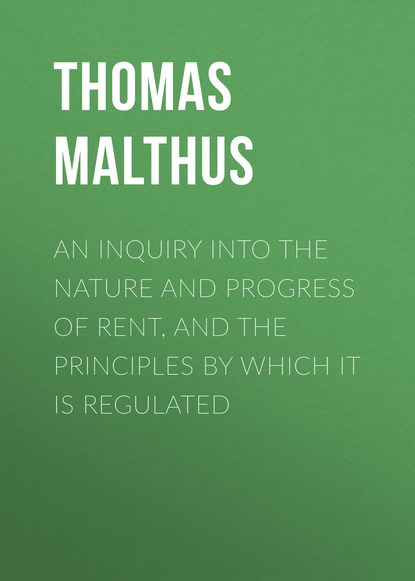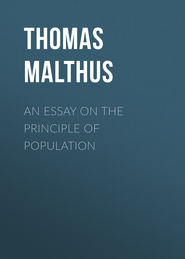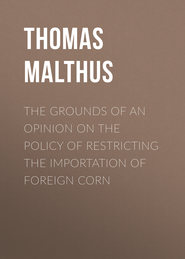По всем вопросам обращайтесь на: info@litportal.ru
(©) 2003-2025.
✖
An Inquiry into the Nature and Progress of Rent, and the Principles by Which It is Regulated
Автор
Год написания книги
2019
Настройки чтения
Размер шрифта
Высота строк
Поля
It will be observed, that I have said in a progressive country; that is, in a country which requires yearly the employment of a greater capital on the land, to support an increasing population. If there were no question about fresh capital, or an increase of people, and all the land were good, it would not then be true that corn must be sold at its necessary price. The actual price might be diminished; and if the rents of land were diminished in proportion, the cultivation might go on as before, and the same quantity be produced. It very rarely happens, however, that all the lands of a country actually occupied are good, and yield a good net rent. And in all cases, a fall of prices must destroy agricultural capital during the currency of leases; and on their renewal there would not be the same power of production.
15
This conclusion may appear to contradict the doctrine of the level of the precious metals. And so it does, if by level be meant level of value estimated in the usual way. I consider the doctrine, indeed, as quite unsupported by facts, and the comparison of the precious metals to water perfectly inaccurate. The precious metals are always tending to a state of rest, or such a state of things as to make their movement unnecessary. But when this state of rest has been nearly attained, and the exchanges of all countries are nearly at par, the value of the precious metals in different countries, estimated in corn and labour, or the mass of commodities, is very far indeed from being the same. To be convinced of this, it is only necessary to look at England, France, Poland, Russia, and India, when the exchanges are at par. That Adam Smith, who proposes labour as the true measure of value at all times and in all places, could look around him, and yet say that the precious metals were always the highest in value in the richest countries, has always appeared to me most unlike his usual attention to found his theories on facts.
16
Even upon the system of importation, in the actual state and situation of the countries of Europe, higher prices must accompany superior and increasing wealth.
17
We must not be so far deceived by the evidence before Parliament, relating to the want of connection between the prices of corn and of labour, as to suppose that they are really independent of each other. The price of the necessaries of life is, in fact, the cost of producing labour. The supply cannot proceed, if it be not paid; and though there will always be a little latitude, owing to some variations of industry and habits, and the distance of time between the encouragement to population and the period of the results appearing in the markets: yet it is a still greater error, to suppose the price of labour unconnected with the price of corn, than to suppose that the price of corn immediately and completely regulates it. Corn and labour rarely march quite abreast; but there is an obvious limit, beyond which they cannot be separated. With regard to the unusual exertions made by the labouring classes in periods of dearness, which produce the fall of wages noticed in the evidence, they are most meritorious in the individuals, and certainly favour the growth of capital. But no man of humanity could wish to see them constant and unremitted. They are most admirable as a temporary relief; but if they were constantly in action, effects of a similar kind would result from them, as from the population of a country being pushed to the very extreme limits of its food. There would be no resources in a scarcity. I own I do not see, with pleasure, the great extension of the practice of task work. To work really hard during twelve or fourteen hours in the day, for any length of time, is too much for a human being. Some intervals of ease are necessary to health and happiness: and the occasional abuse of such intervals is no valid argument against their use.
18
I have hinted before, in a note, that profits may, without impropriety, be called a surplus. But, whether surplus or not, they are the most important source of wealth, as they are, beyond all question, the main source of accumulation.
19
Adam Smith notices the bad effects of high profits on the habits of the capitalist. They may perhaps sometimes occasion extravagance; but generally, I should say, that extravagant habits were a more frequent cause of a scarcity of capital and high profits, than high profits of extravagant habits.









